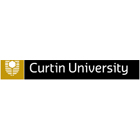Bachelor of Computing (Cyber Security)
Bachelor of Computing (Cyber Security)
This course will equip you with high-level knowledge of computer systems and processes involved in software development and maintenance. It covers aspects of modern computing, commencing with fundamental programming and theoretical knowledge; and followed by specialisation in computer science, cyber security or software engineering. You will use C and Java…
Categories
COURSE DESCRIPTION
This course will equip you with high-level knowledge of computer systems and processes involved in software development and maintenance.
It covers aspects of modern computing, commencing with fundamental programming and theoretical knowledge; and followed by specialisation in computer science, cyber security or software engineering.
You will use C and Java as the tools for learning core concepts such as object orientation and algorithms. Linux skills are taught throughout the course, starting with the basics and progressing to advanced topics.
This degree is designed to prepare you for careers in computing. Accordingly, Curtin works closely with industry partners both to optimise course content and provide final-year placement opportunities to suitable students.
Students who perform well in the first year of this course can apply to transfer to the Bachelor of Advanced Science (Computing) course, although acceptance is not automatic.
Cyber Security
This major focuses on the key concepts and challenges in data protection and computer software security.
You will examine both the high- and low-level practical aspects of computer security. High-level aspects include cryptography theory, data access policy development and security program management. Low-level aspects include computer forensics, network intrusion detection and incident handling.
Graduates will have the skills to identify and implement appropriate applications for specific scenarios, as well as an understanding of issues related to the protection of individual rights.
Professional recognition
Graduates can apply for accreditation from the Australian Computer Society.
The Cyber Security major meets the data and security standards of the Institute of Electrical and Electronic Engineers; Association for Computing Machinery; and Australian Computer Society.
Career information
Careers
Computer programmer
IT professional
Computer security professional
Software engineer/developer
Industries
Applications and software development
Game design and development
Cyber security
IT analysis
What you’ll learn
Implement secure processes based on best practice when developing software and dealing with computer systems
Evaluate standard algorithms, techniques, and software technologies in a manner that is appropriate for a given problem and think critically and creatively to generate innovative and optimum theoretical and practical solutions
Identify, evaluate and synthesise information from a range of computing sources to optimise the process of software design and implementation
Document software development activities and artefacts and communicate them in written and oral form to both technical and non-technical audiences and communicate effectively in ways appropriate to the audience and purpose
Effectively use new and existing technologies, recognising their advantages and limitations
Sustain intellectual curiosity by updating their knowledge, engage in continuous training and research, and take control of their own learning and development.
REQUIREMENTS
Students from different countries should have qualifications equivalent to Australian Year 12 and a scaled mark of at least 50 in English, Literature, or English as an Additional Language or Dialect.
IELTS (International English Language Testing System) – Listening, Reading, Writing, and Speaking – 6.0; Overall band score 6.0; TOEFL Score: 79 (overall); Reading 13; Listening 13; Speaking 18; Writing 21; Pearson Test of English – Listening, Reading, Writing, and Speaking – 50; Overall band score 58; TOEFL (Test of English as a Foreign Language) and PBT (Paper Based Test) – 570 and 4.5 in TWE; C1 Advanced Formerly known as Cambridge English: Advanced (CAE) 176 with 169 in Reading, Writing, Listening and Speaking. C2 Proficiency Formerly known as Cambridge English: Proficiency (CPE) 190 with 176 in Reading, Writing, Listening and Speaking.
EDUCATIONAL INSTITUTION
Curtin University is Western Australia’s largest and most culturally diverse university with Australia’s third largest international student population. Around 60,000 students from more than 130 countries study a Curtin degree, at locations including Perth, Margaret River, Kalgoorlie, Sydney, Malaysia and Singapore. Our cultural diversity adds a rich and valuable dimension to the campus atmosphere, preparing all graduates to live and work effectively in an increasingly global environment. We offer a range of industry-aligned undergraduate and postgraduate courses in business, humanities, health, engineering and related sciences. We also have a long-standing focus on Aboriginal and Torres Strait Islander education and culture, supported by our Centre for Aboriginal Studies.Curtin is widely recognised for its practical research that is focused on solving timely, real-world problems. In recent years our research activity has grown significantly, driving our rapid rise up the international university rankings.As a university that never settles, we will continue to develop existing partnerships and establish new ones in areas relevant to our research and teaching.




